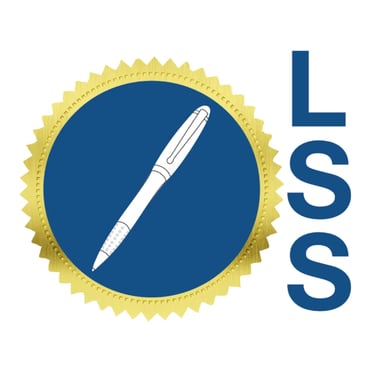Ensuring Compliance - How Loan Signing Agents Follow State Notary Laws for Secure Closings
LOAN SIGNING SERVICES
Frank L Coxx
3/26/20257 min read


You must understand the importance of compliance as a loan signing agent in today’s real estate transactions. Following state notary laws not only ensures the legality of your closings but also protects all parties involved. In this blog post, you will learn how to effectively navigate the various regulations governing notarization and the role these guidelines play in securing successful closings. Your knowledge and adherence to the law are key to building trust and achieving professional success in this field.
Understanding State Notary Laws
Before you begin on your journey as a loan signing agent, it's imperative to understand the specific notary laws in your state. Each state has its own regulations governing notary practices, which can affect how you perform your duties during loan signings. Familiarizing yourself with these laws will help ensure that your closings are compliant, secure, and recognized by all parties involved.
Overview of Notary Public Responsibilities
Behind the scenes, a notary public plays a vital role in ensuring document integrity and preventing fraud. Your responsibilities include verifying the identity of signers, administering oaths, and affixing your notary seal to various legal documents. Understanding these responsibilities is key to providing a seamless experience during the loan closing process.
Key Differences Between States
One of the most important aspects to consider is that notary laws differ significantly from state to state. While some states have similar requirements, others may have unique regulations regarding fees, electronic notarization, and even the types of documents that can be notarized.
The diversity in state notary laws means that as a loan signing agent, you must stay informed about your own state’s regulations, as well as those relevant to other states you may encounter. For instance, some states allow remote online notarization, while others require in-person signings. Additionally, the fees you can charge for notarization services may vary. Keeping track of these differences will not only enhance your expertise but also ensure that you perform your duties in compliance with applicable standards.
The Role of Loan Signing Agents
Clearly, loan signing agents serve as vital facilitators in the real estate closing process, ensuring that all paperwork is executed correctly and legally. They bridge the gap between the borrowers and lenders, providing an atmosphere of trust and clarity. By adhering to state notary laws, they protect the interests of all parties involved, helping to navigate the complexities of transactions and securing a smooth closing experience.
Responsibilities in the Closing Process
By understanding your responsibilities in the closing process, you can effectively guide clients through the signing of critical documents. As a loan signing agent, you are tasked with verifying identities, ensuring proper document execution, and explaining necessary paperwork to borrowers. Your role is vital in ensuring that all parties are informed and comfortable, minimizing the likelihood of issues arising during closing.
Legal Implications of Improper Compliance
By failing to comply with state notary laws, you expose yourself and your clients to significant legal repercussions. Missteps in document execution or notary procedures can lead to delayed closings, financial losses, or even invalidation of the transactions. It is vital to familiarize yourself with specific regulations governing notary practices in your state, as non-compliance can result in penalties or civil liability.
Signing documents without a proper understanding of legal implications can put you at risk for malpractice claims or disciplinary action from notary boards. In some cases, your commission to serve as a notary could be revoked, jeopardizing your career as a loan signing agent. Ensuring adherence to state regulations protects you, your clients, and the integrity of the closing process. Taking the time to educate yourself about the laws in your state is a proactive step toward safeguarding your professional responsibilities.
Training and Certification for Loan Signing Agents
While navigating the legal landscape of loan signings, it’s important for you to undergo comprehensive training and certification. This process equips you with the necessary skills and knowledge to perform your duties accurately, ensuring compliance with state notary laws. Training prepares you to handle documents expertly, communicate effectively with clients, and understand the implications of your role in the closing process.
Importance of Education and Training
One of the key factors in your success as a loan signing agent is the level of education and training you acquire. By investing in these resources, you not only enhance your professional skills but also build confidence in executing your duties accurately. This education helps you make informed decisions and avoid potential pitfalls, ultimately contributing to smoother closings.
Certification Programs Available
Certification programs designed specifically for loan signing agents can provide you with specialized knowledge about the industry. These programs often cover important topics, including document types, notary laws, and closing procedures, ensuring you're well-prepared for your responsibilities.
Due to the competitive nature of the real estate and loan signing fields, numerous certification programs have emerged to help you stand out. Some programs are offered by reputable professional organizations, providing recognized certifications upon completion. These programs typically include online courses, webinars, and hands-on workshops, making them accessible regardless of your level of experience. By participating in these programs, you not only enhance your skills but also boost your credibility with clients and lenders, positioning yourself for greater success in the industry.
Best Practices for Compliance
Once again, ensuring compliance with state notary laws is vital for your role as a loan signing agent. By adhering to best practices, you can effectively safeguard the integrity of the closing process. This includes staying updated on state regulations, regular training, and implementing meticulous record-keeping practices. Your commitment to compliance not only protects you but also builds trust with clients and lenders alike.
Procedures for Ensuring Compliance
Practices for ensuring compliance involve a series of systematic steps. Begin by familiarizing yourself with your state’s notary laws, including signing procedures and document requirements. Establish a routine for document verification and always keep detailed records of each transaction. Engage in ongoing education through workshops or online courses to stay informed about any updates or changes in regulations.
Tools and Resources for Notaries
Tools that can enhance your effectiveness as a notary include checklists, document templates, and reliable identification verification methods. Online platforms can also provide access to resources like training modules and legal updates tailored specifically for notaries.
But utilizing tools and resources not only enhances your efficiency but also helps you maintain compliance effortlessly. Consider using a dedicated notary software to track appointments, store documents securely, and automate reminders for important deadlines. Additionally, joining a professional organization can connect you with a wealth of materials, expert advice, and networking opportunities that further bolster your compliance efforts.
Common Challenges Faced by Loan Signing Agents
Unlike other professions, loan signing agents encounter unique challenges that can impact the closing process. You must navigate varying state regulations, manage client expectations, and ensure document accuracy under tight deadlines. These hurdles require not only in-depth knowledge of notary laws but also strong communication skills to maintain trust with clients and lenders alike.
Navigating Complex Transactions
After dealing with standard loan documents, you may find yourself facing more complex transactions involving multiple parties and intricate requirements. These situations demand a keen understanding of not only the documents involved but also the underlying legalities shaping each transaction. To succeed, you must maintain attention to detail while coordinating with various stakeholders to ensure a seamless closing process.
Keeping Up with Changes in Laws
The landscape of notary laws is continually evolving, and you need to stay informed of any updates that affect your practice. Given that regulations can differ widely between states, it's vital to actively engage with local notary organizations, attend training sessions, and follow reputable legal resources. This proactive approach helps you remain compliant and maintain the integrity of your service.
To effectively keep up with changes in laws, consider setting up alerts for regulatory updates and subscribing to newsletters that focus on notary practices. Engaging with other professionals in the field through forums or social media groups can also provide valuable insights. By dedicating time to ongoing education, you ensure that your knowledge remains current, ultimately benefiting both you and your clients during the closing process.
Ensuring Secure Closings
Not only do loan signing agents facilitate the signing of important documents, but they also play a vital role in maintaining the security of sensitive information throughout the closing process. Trust is vital; your clients depend on you to ensure that their financial data remains confidential. Following state notary laws and implementing best practices in security can help you protect both your clients and your reputation.
Importance of Security in Loan Signings
Around the world of loan signings, security is paramount to enhance the buyer's and lender's confidence. Given the potential for identity theft and fraud, ensuring that all transactions are handled with the utmost security is fundamental to fostering trust. As a signing agent, safeguarding sensitive information not only protects your clients but also reinforces your credibility in the industry.
Strategies for Protecting Sensitive Information
Against this backdrop of heightened awareness, you must adopt effective strategies in safeguarding sensitive data during loan signings. Implementing secure communication channels, using password protection for electronic documents, and carefully verifying the identity of all parties involved are vital practices. By prioritizing security measures, you can ensure safe and trustworthy transactions.
Another effective approach is to maintain a secure environment during client interactions. This might include minimizing the use of personal devices for document handling and ensuring that your workspace is free from prying eyes. Additionally, consider utilizing encrypted software for transmitting documents and data, eliminating the risk of interception. By integrating these strategies into your signing process, you can significantly reduce the risk of data breaches and maintain the integrity of transactions.
Conclusion
Taking this into account, it is imperative for you to understand how Loan Signing Agents comply with state notary laws to ensure secure closings. Their adherence to legal requirements not only protects your interests but also promotes trust in the loan process. By engaging with Notary Signing Agents: The Unsung Heroes of Loan Closings, you can have confidence that your documents are handled expertly, safeguarding your investment and helping your transactions proceed smoothly.




